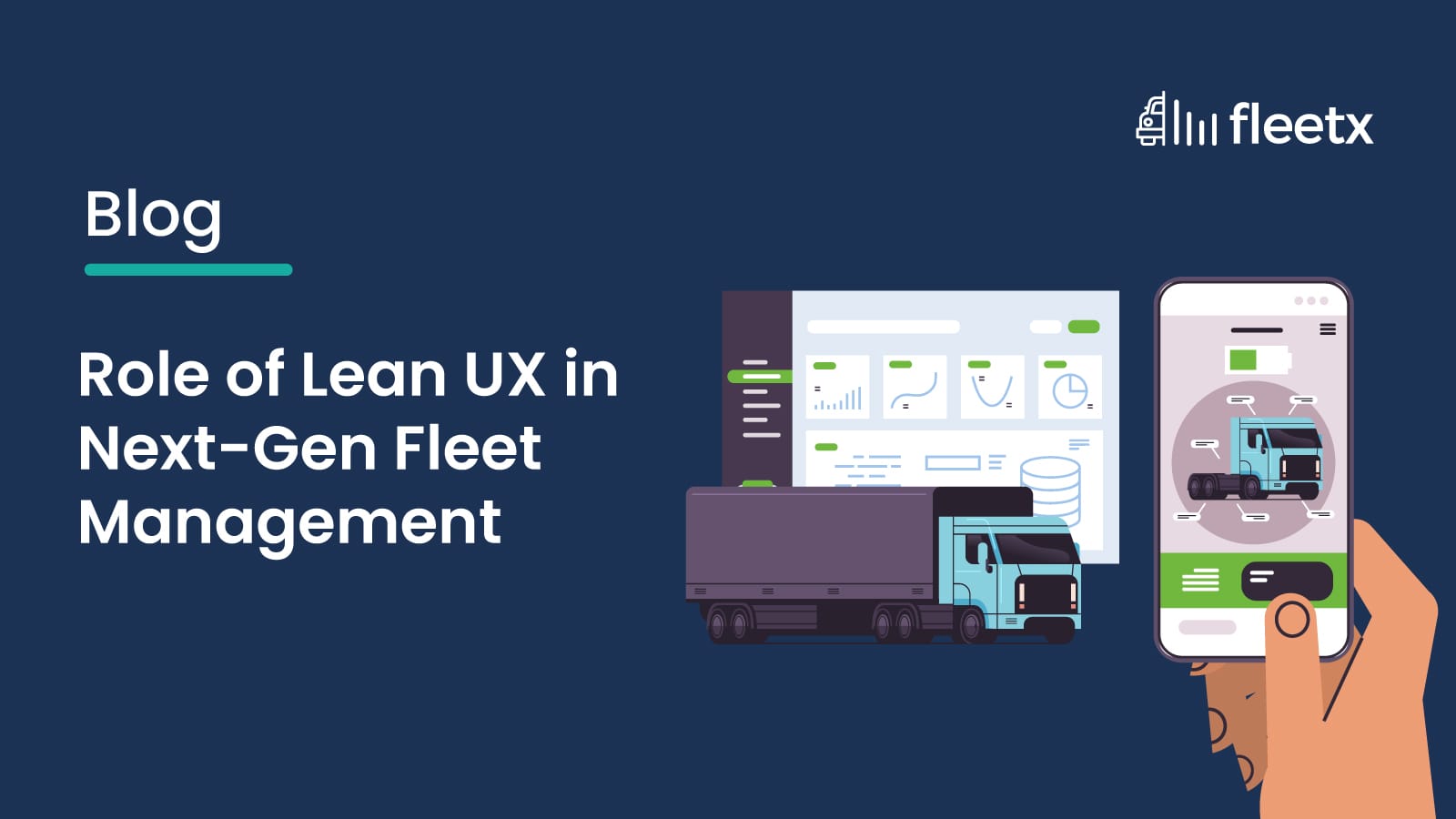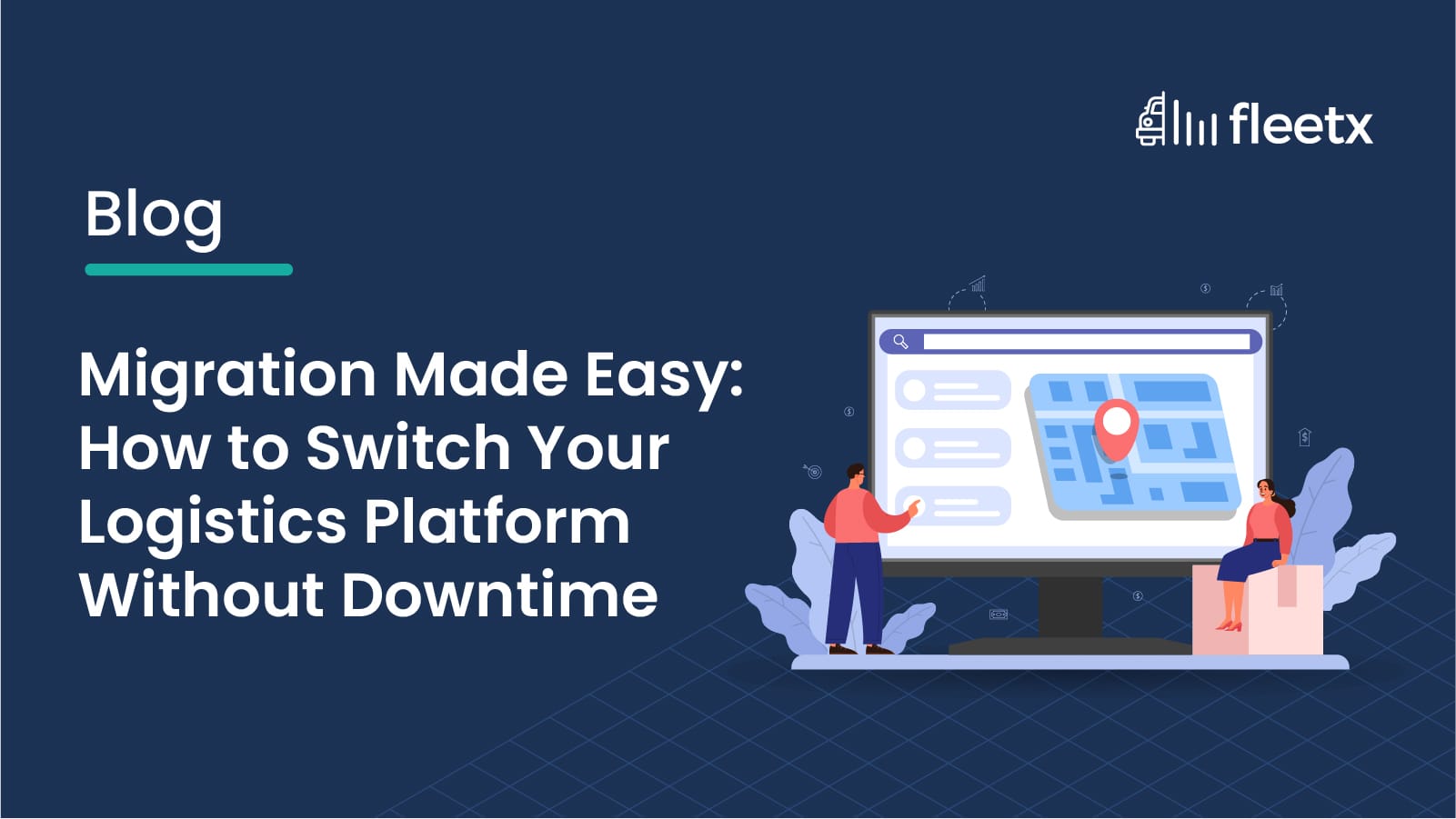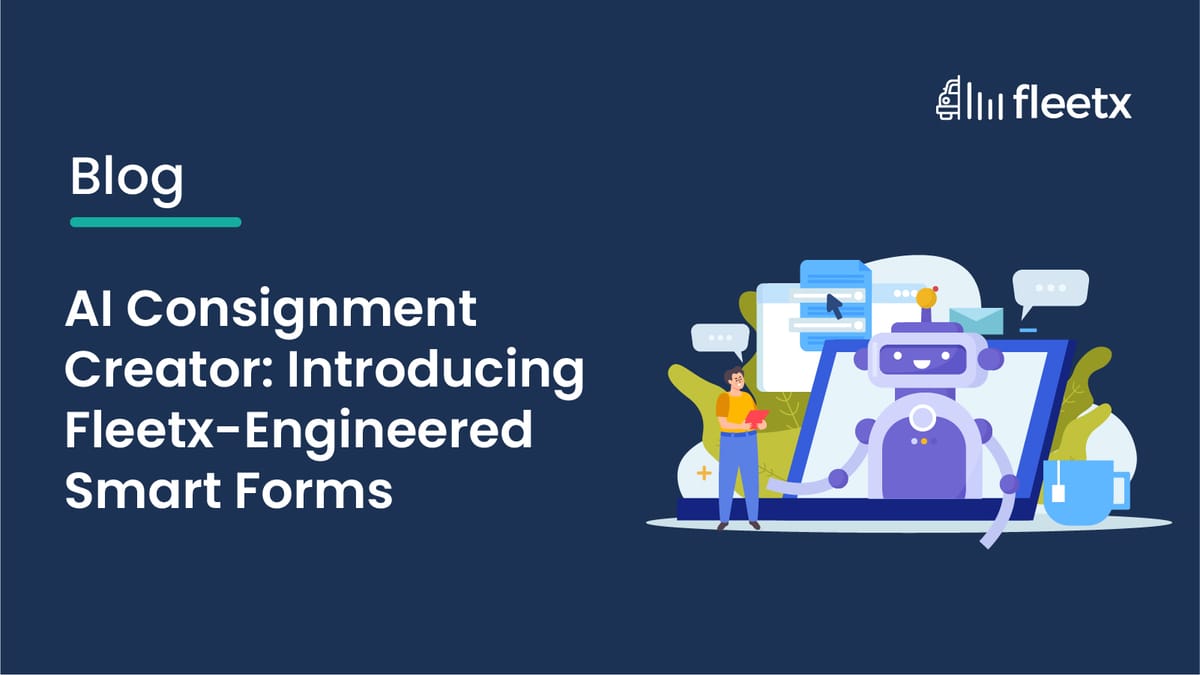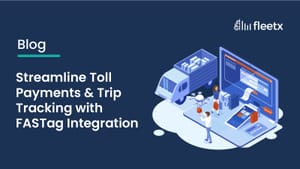
The multi-device logistics ecosystem requires an intuitive user experience (UX) for efficient data sharing and interdepartmental collaboration - managing driver engagement and satisfaction effectively. Moreover, custom fleet management platforms reduce operational errors and delays with minimal intrusive interactions - resulting in higher retention rates and operational success.
So, let’s explore how the process works for logistics businesses to maximize the potential of their multi-device system infrastructure.
Lean UX - Need of the Hour for Future-Proofing Fleet Businesses
The Indian fleet management market is estimated to grow rapidly in the coming years - expected to reach USD 3 billion by 2033, with a growth rate (CAGR) of 10.21% from 2025 to 2033. Global telematics and fleet management platforms are expanding rapidly - to streamline and optimize fleet management.
This amplified growth in the fleet management market is attracting more users who require better data handling and more edge cases. A heavy, slow, complicated UX, or managing fleet operations via Spreadsheets and phone calls, directly leads to business losses. A lean UX solves the need for speed, efficiency, and continuous improvement, promoting higher product adoption.
Solving Fleet Management Challenges With an Intuitive UX Design
Any operation or organization that uses commercial vehicles for business purposes requires supervision of all fleet-related activities, including operations and maintenance. Several aspects of vehicle supervision, such as maintenance, fuel consumption, expense tracking, route planning, waste reduction, etc., have to be administered by fleet managers, and a user-friendly fleet management application makes their jobs easier.
The specific challenges and simultaneous solutions from a UI/UX perspective include:
Web, Mobile, and Tab Settings
Platform-wide accessibility is crucial for seamlessly handling fleet operations. Fleet managers and operators require real-time data and statistics via cross-platform accessibility to make faster and effective decisions.
Challenge:
One of the primary difficulties of designing a cross-platform app is to ensure its appropriate response across different screen sizes and custom solutions while delivering a consistent experience all through, despite various restrictions on different platforms.
Solution:
A responsive design approach enables the application’s usage on a wide range of devices, prioritizing essential features and ensuring a user-friendly navigation across screen sizes. App designers have to ensure its functionality for larger displays with several data visualization features.
Data Dashboards
Fleets generate a huge volume of data regarding driver behaviour, fuel usage, location tracking, maintenance schedules, and more. Dashboards serve as the central hub for all fleet-related updates, providing a crucial foundation for data-based decision-making.
Challenge:
The primary challenge with dashboard data management is for users to quickly comprehend fleet data, with ready access to practical information that facilitates informed decision-making.
Solution
A modular design enables users to customize and prioritize data that matters to them the most, using size, colour, and positioning techniques to create a visual hierarchy of data visualization tools within the dashboard design.
Profile Variation in Target Audience
Fleet management apps have a wide user base - fleet administrators, dispatchers, drivers, etc. - and the user needs vary significantly.
Challenge:
The diverse needs and preferences of the wide array of users make it challenging to navigate the app, as different user roles need different levels of authorization and access across technologies and disability features.
Solution:
Designers have to comprehend the needs and potential hurdles of different user roles by mapping separate customer journeys and then designing the app to meet the specific requirements. Inclusive features such as text-to-speech or keyboard-only navigation make the system more accessible for all levels of users, especially the less tech-savvy individuals who prefer a simpler approach in user interface design.
AI-Based Processes
AI integration is mandatory in fleet management apps to improve productivity, reduce expenses, and enhance security. Fulfilling business goals requires features powered by artificial intelligence, such as ensuring efficient fuel consumption, driver behavior monitoring, real-time route optimization, as well as predictive maintenance.
Challenge:
Incorporating AI features within the app while making it straightforward is quite a challenging task. UX designers have to decide cautiously about the best technique to convey complex data while providing insightful fleet information that’s crucial to uplift productivity.
Solution:
For guiding users through AI functions, designers should prioritize clear visualizations, tool tips, and in-app instructions for accurately explaining the operational features and benefits. Designers must consider their users’ levels of familiarity with the AI features in the app and include operational instructions and benefits accordingly.
Large Volumes of Data
Fleet management applications have to collect, organize, and visualize vast amounts of vehicle and driver-related data that users need to access swiftly for making insightful business decisions.
Challenge:
A rational organization of data is critically important for managing large quantities of inputs, so designers have to arrange this data efficiently without overloading users with details.
Solution:
Collating relevant data into filter-based collections enables users to access their requirements conveniently. Using visual cues like font sizes, colors, and shapes for critical content pieces is key. Pagination or lazy loading improves user engagement by highlighting important information more quickly than others.
Screen Navigation & Search
Large amounts of data make it harder for users to locate important details fast. So, an effective navigation and search design is critically important for a positive user experience.
Challenge:
The complexity of building an intuitive navigation structure lies in incorporating the needs of different users and adapting the design accordingly.
Solution:
Users need several means of browsing data - including breadcrumbs, navigation menus, and ‘search’ options - that make it easier to locate required information.
Maps for Location Tracking
Fleet managers have to track their vehicles live to stay informed constantly. Intuitive tracking features and maps are necessary.
Challenge
Designing multiple aspects on a map while providing live position data that is convenient and visually appealing makes the entire process challenging. An efficient fleet management software must balance assets and data effectively while providing timely alerts.
Solution
This issue can be successfully managed through interactive layouts with data, distinct visual aids, and subtle display animations that present real-time updates. Moreover, custom fleet management systems offer filtering options for users to select their required levels of detail in order to prevent information overload.
Agile Development: The Go-To Sustainable Practice for Developers
Agile processes promote sustainable development, and the sponsors, developers, and users can maintain a constant pace throughout. The goal was to work collaboratively, but the founders of this pattern were only focused on development and not on the complete product lifecycle.
Enter Lean UX
Lean UX was developed to combine the best aspects of Agile development, lean startup, and design thinking. Agile was intended to eliminate waste and offer the product to the customer ASAP, and then proceed based on feedback. Lean UX implementation can come across multiple hurdles, and certain suggestions make the process easier -
Implement a Design System or a Component Library
The set of pre-built components helps in establishing the layouts and interfaces. By standardizing components, both the designers and developers can be on the same page and create interfaces swiftly.
Front-End & Back-End Code Decoupling
These two development styles are very different, and only a handful of developers are equally skilled at both. But if the two are loosely combined and linked together via an API with a shared data contract, then front-end developers can use that shared component library to create UI code by incorporating several elements together and keep iterating.
User Research Practice
One of the major lean UX hurdles is the inability to learn from the users and customers. Part of that involves having a component library that enables developers to solve problems instead of building components on every project. The other part consists of getting the design to customers fast and efficiently. The biggest challenge in user research practice is in finding participants, but once that is in place, developers just need to talk and validate ideas with customers.
How Does the Fleetx Front-End Team Keep Up With the Challenges
In line with feedback received from the customers, Fleetx incorporated the recommendation in the UX/UI design to improve the platform’s usability. Let’s explore how this feat was possible -
Technology Stack Utilized
The front-end stack includes ReactJS as a frontend JavaScript framework/library. Besides ReactJS, other technologies utilized include:
- Redux store for state management
- Loadash for utility functions
- Bootstrap 4 for CSS
- React Google Maps/API for Google Maps
- Formik for form management & other small libraries
The team of a few developers started the front-end development with core ui, and it presented positive results. Other such libraries were also utilized, and the customers got the desired product.
Tracking & Analysis of OBD Issues and Anomalies
Upon receiving data from OBD devices, some scripts were run at particular intervals to detect anomalies and push the data to BigQuery. The frequency of that issue with a specific device can be analyzed from BigQuery, and when any severe issue is detected that can’t be fixed with a remote signal, our technicians go to fix it.
Regular Performance Check
Several tools are utilized to supervise the application’s performance - Firebase Performance SDK, Lighthouse, etc. Moreover, the bundle size is kept small for the application to work seamlessly, even on weaker networks, by employing code optimisation, code uglification, code split methods, etc.
Logging & Bug Tracking
Some of the back-end tasks are handled on the node server, making node logging as important as any other server. The platform combination of Winston, Morgan, and Sentry is utilized for node server logging.
For the front-end, the Sentry (Raven) error tracking SDK gives complete insight into the errors.
Reporting Made Easy
Clients can avail multi-format reports - PDF, Excel, and CSV - for several fleet performance metrics, enabling faster decision-making.
Lean UX - The Challenge & the Route to Success
When companies started software development, it had to be manufactured and physically distributed. A supply chain was required, piling onto the expenses. The pressure to “get it right” was immense.
The future of logistics and fleet management is certainly intelligent and would require constant optimization. Lean UX principles can be challenging to implement in the real world, but as long as organizations consider it as a process, a roadmap, and not all-or-nothing, the execution will be a success.
What is the importance of lean UX in modern fleet management platforms?
The outdated “multiple clicks to find one detail” routine is a highly unproductive activity. Lean UX removes the layer of fluff - leading to decision-making prowess, workflow simplification, and facilitating team-wide smooth operations across devices without getting entangled in cluttered dashboards and slow interfaces.
What is the role of intuitive UX in driver and fleet operator satisfaction?
A simple, cross-platform interface results in fewer taps and fewer errors. When drivers and operators can work seamlessly on the web, mobile, or tablet, engagement rates spike and so does retention. A happier crew translates into lower operational headaches.
Is a UX critical for managing huge volumes of fleet data?
Yes. An incapable UX turns data into chaos, and a decent one turns it into clarity. Modular dashboards, filters, hierarchical visuals, and AI-generated insights enable fleet managers to detect issues faster, prioritizing what’s important, and avoiding unproductive scrolling sessions.
Does AI facilitate fleet management UX?
AI works in silence in the background - through route optimization, breakdown prediction, and detecting fuel inefficiencies - but a capable UX layer is necessary for the functions to be executed seamlessly. Visual cues, tooltips, and instructional guidance ensure users get the required intelligence on time.






